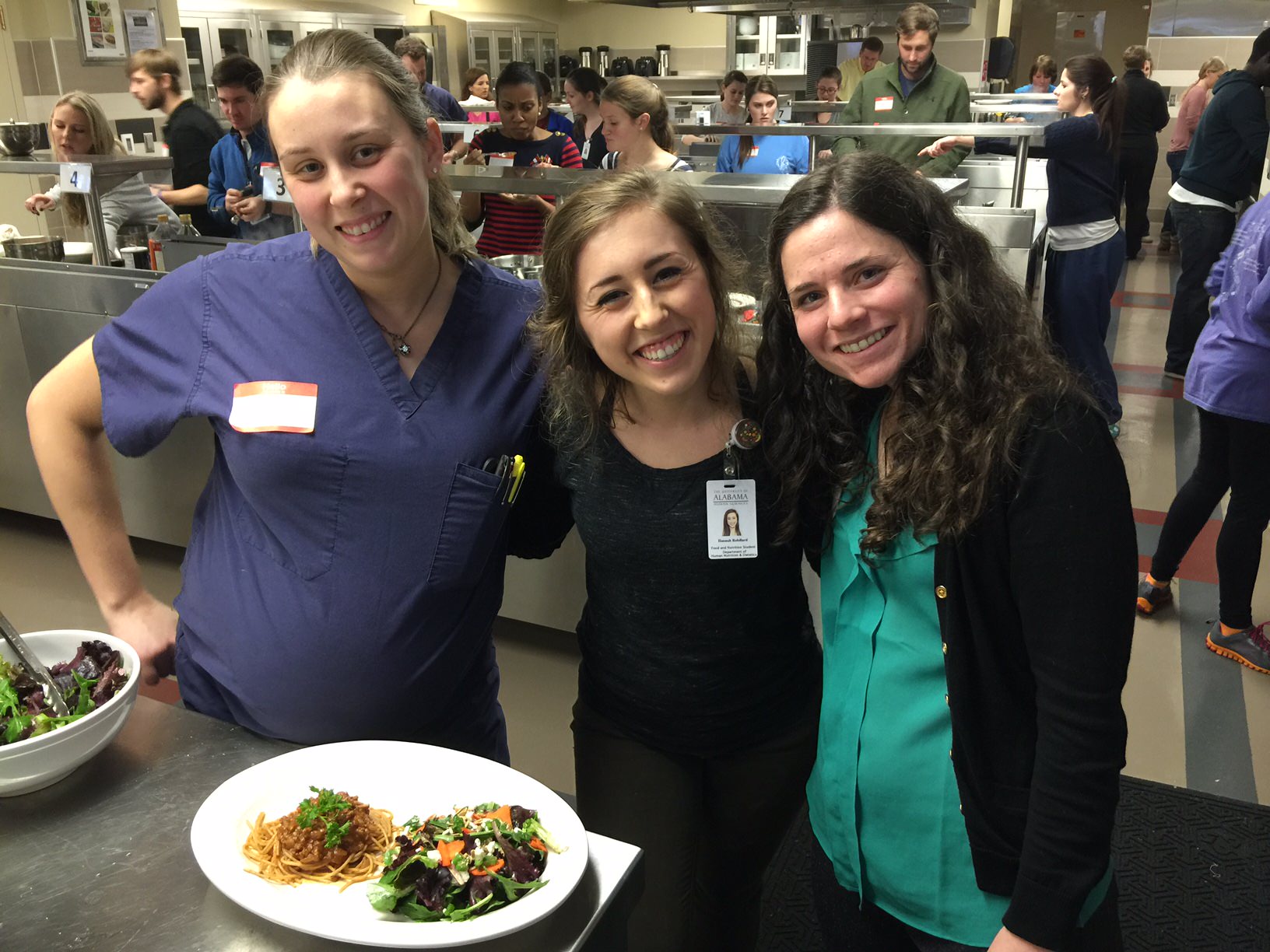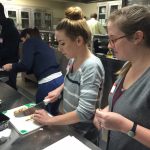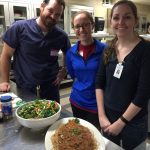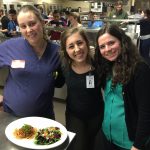Medical students and residents at the College who are taking UA’s new Culinary Medicine elective had their first class on January 26. The course is a partnership of the Colleges of Community Health Sciences and Human Environmental Sciences.
“This is the kickoff of the first Culinary Medicine elective,” Dr. Richard Streiffer, dean of CCHS, said to begin the class.
Through lectures, hands-on cooking classes and follow-up discussion, the class will teach CCHS medical students and family medicine residents, as well as CHES nutrition students, how to better educate patients about their diets. Students will learn the basics of cooking so that they can provide patients with helpful information when addressing chronic disease management and obesity. Classes are held in the CHES teaching kitchen.
Twenty-four students are taking the course – 10 medical students, eight nutrition students and six residents. It is taught by Dr. Jennifer Clem, assistant professor in family medicine for CCHS, and Dr. Linda Knol, associate professor of human nutrition for CHES.
The course pulls from modules of the curriculum of the Goldring Center for Culinary Medicine at Tulane University School of Medicine in New Orleans and includes principles of diabetes, weight and portion control, hypertension, sodium, carbohydrates and the Mediterranean diet.
“I have patients who are overweight, who have diabetes, and that’s why I’m here,” Clem told the students.
During the first class, students divided into three teams of eight and participated in a cooking exercise. Teams prepared a dinners of whole-wheat spaghetti, some with meat sauce and some with lentils and vegetables, as well as salads with lettuce, kale, carrots and other vegetables. After the cooking exercise, they discussed the nutritional content of the dishes, learning, for example, that using whole-wheat pasta increases the amount of fiber in one’s diet.
Streiffer touted the benefits of the interprofessional aspect of the course.
“Doctors don’t learn enough about nutrition in medical school, and a great majority of chronic disease is nutrition related. Other disciplines have greater practice with this. We can learn from each other.”





